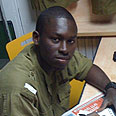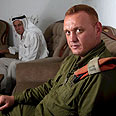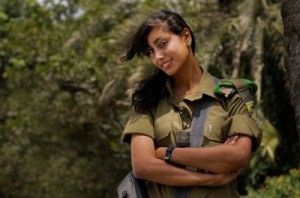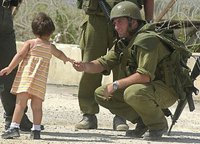So there I was watching my first child exit his mother’s birth canal in a hospital in Manchester.
Fast forward almost 27 years and I am sitting with my wife in Northern Israel watching that same child receive his beret on completion of his basic training in the IDF.
Roll back again to 1985. No, roll back to 1975.
I am sitting in a House for Jewish students in Liverpool playing chess at the beginning of my second year at University. New arrivals. A young woman with black hair in a fringe peers round the door of the lounge and says ‘hello’ and gives her name. I look up, mutter something, and return to my Ruy Lopez.
Now I know the whole story of how I got from moving my bishop to Knight 5 to the moment an officer rams a beret on my son’s head and I turn to my wife and we are both crying buckets. Not buckets of fear and anticipation, but of pride and a certain bewilderment.
For a few minutes we are Israelis. There are several hundred people pressed up behind us; parents, grandparents, brothers and sisters. We are right at the front, a few feet from the action.
We stand for the Hatikvah, the national anthem. I manage the first two stanzas, then I am consumed with an indescribable sensation and my voice breaks. I fight back tears. I compose myself. I manage the last couple of stanzas with gusto.
To be a free people in our own land, the Land of Zion and Jerusalem
The ceremony ends.
Fast rewind 30 years.
During the 1980s I wasn’t much interested in Israel, or Jewish history, or, indeed, Judaism. Every attack on Israel was keenly felt, however. I was not Israel-neutral but I didn’t much like what was happening to Palestinians on the West Bank, I didn’t like settlements and I found not one Israeli leader that I could identify with. Those views still persist but I can now at least contextualise them.
Truth be told, although I believed in Israel’s right to exist and Jewish self-determination, I didn’t much like Israelis and I simply determined not to go their country until Israeli government policy changed.
I was a bit of a lefty. I still am someone with instinctive left-leaning views. I somehow have an urge to apologise for that. But I’ll demur. For now.
So what changed?
I educated myself. I read history. I learned. I abjured simplistic views of the conflict.
I eventually made my first trip in 1999 and all my preconceptions about arrogant Israelis were confirmed. I did not like the country.
Then, after more visits, I came to understand the culture better and I began to accept the rudeness, the bad driving and the chutzpah. I began the process of understanding that these few million insufferable Orientals were guaranteeing my escape route from future persecution. They were creating a new/old culture so complex and rich and controversial and noisy and wonderful – and against such incredible odds.
I eventually became comfortable not just with my Jewish identity but I came to understand that Israel is really a modern paradigm for the last 2000 years of Jewish history; always under attack, always threatened. Which other people live in constant fear that sooner or later they really will be wiped off the map?
Despite the vicissitudes of this existence over the millennia, and maybe because of it, the Jewish people have not just found ways to survive but also thrive, quite often achieving high levels of literacy, wealth and, where allowed, social status. They always achieved this despite frequent periods of persecution, expulsion and confiscation.
Israel has, since the days of the yishuv, the pre-state political entity, continued on this same path of achievement. But the difference is that with independence and self-determination Jews can, at last, defend themselves from the dark forces that persist in trying to destroy us.
So that indescribable feeling I experienced, which I mentioned before, that I felt as I watched my son receive his beret was due to all this history, all this collective experience, all the pride in his achievement and that of the young men we met that day. Pride in myself. Pride in my people. Secure in the belief and knowledge that, despite its imperfections, its internal problems, external aggression, existential threats, lies, propaganda and undiluted hatred, the despised country of a despised people was at its core strong, moral, determined and righteous.
And mixed with all these emotions was that bewilderment from the realisation that my wife and I were responsible. We were not here by chance. We had truly changed the world as all of us do. The accident of our meeting all those years ago resonates throughout our lives and the lives of our children. Of course, the same is true for our parents and their parents and back through the years and the decades and centuries. Each small act or decision or coincidence leads to everything we and those following us experience for good or ill.
So do not believe that you are not important. We all change the world, the present and the future every day. What we can never do is to predict where these choices will one day lead. We can only strive and hope they are mainly for the better.



